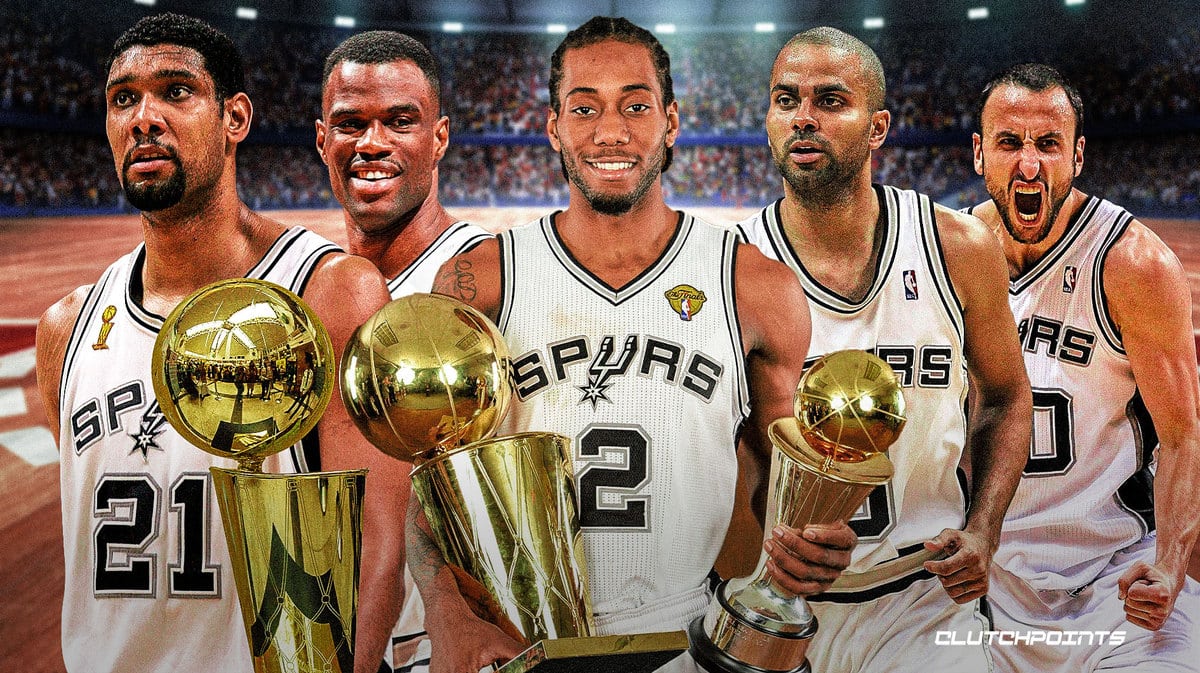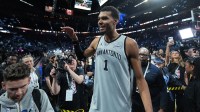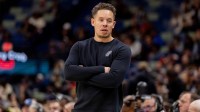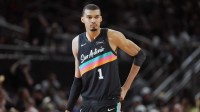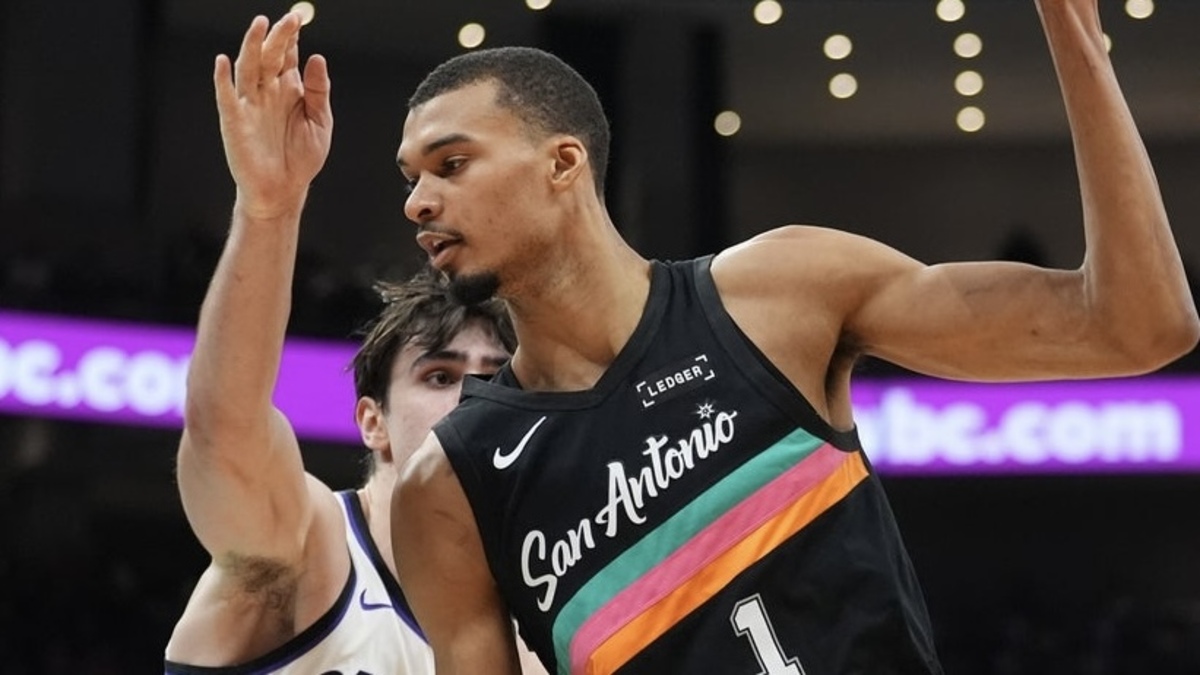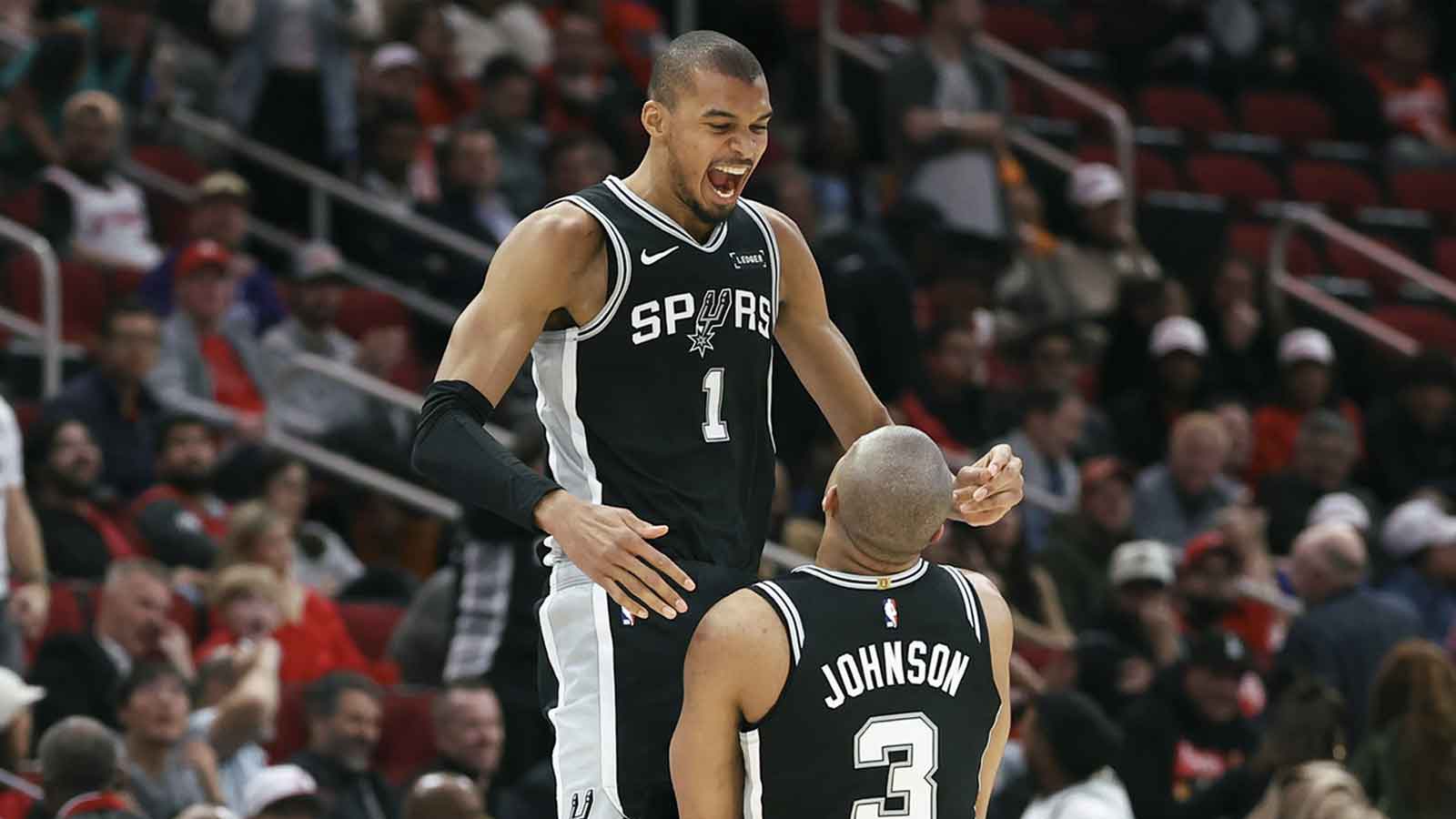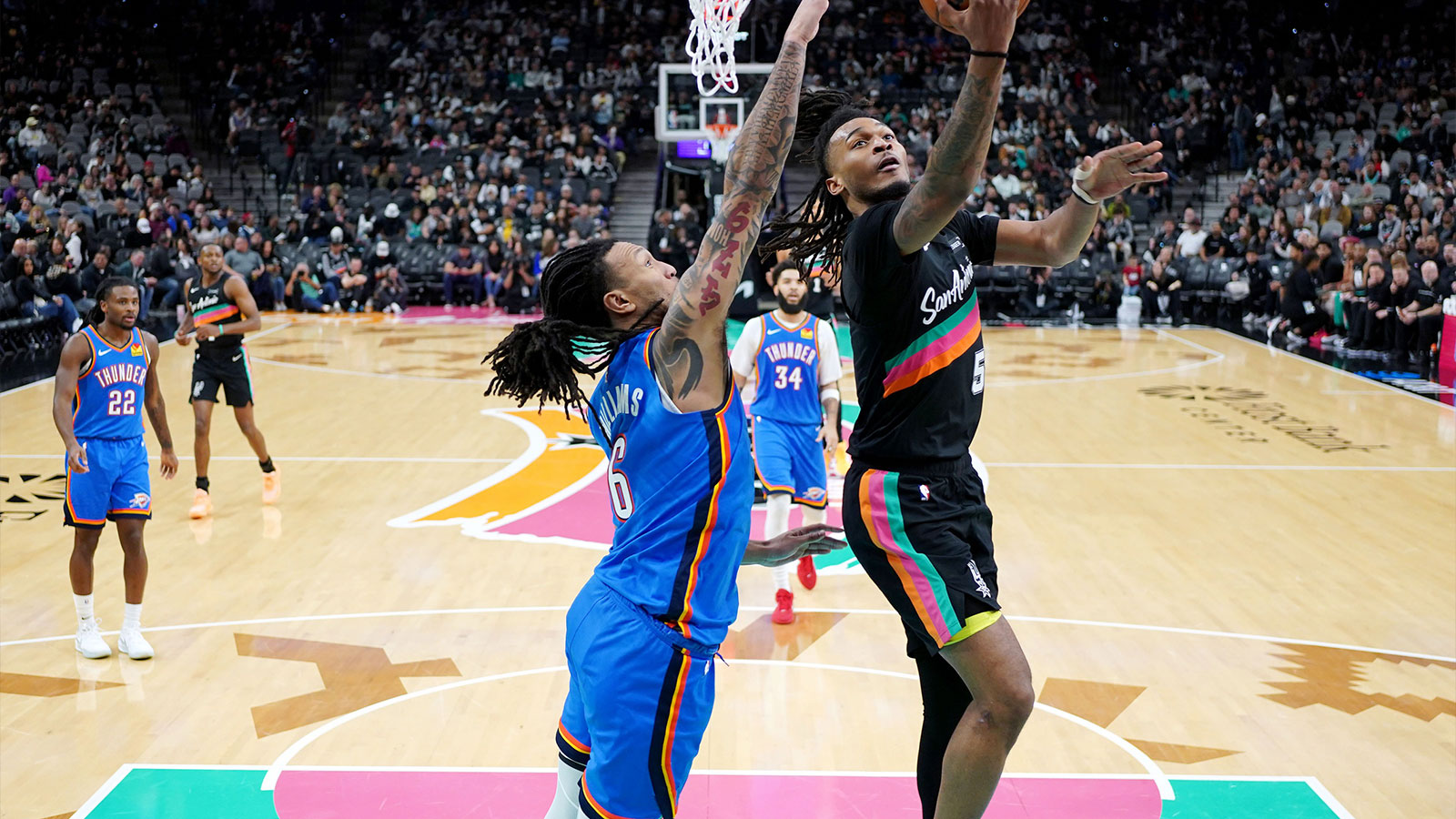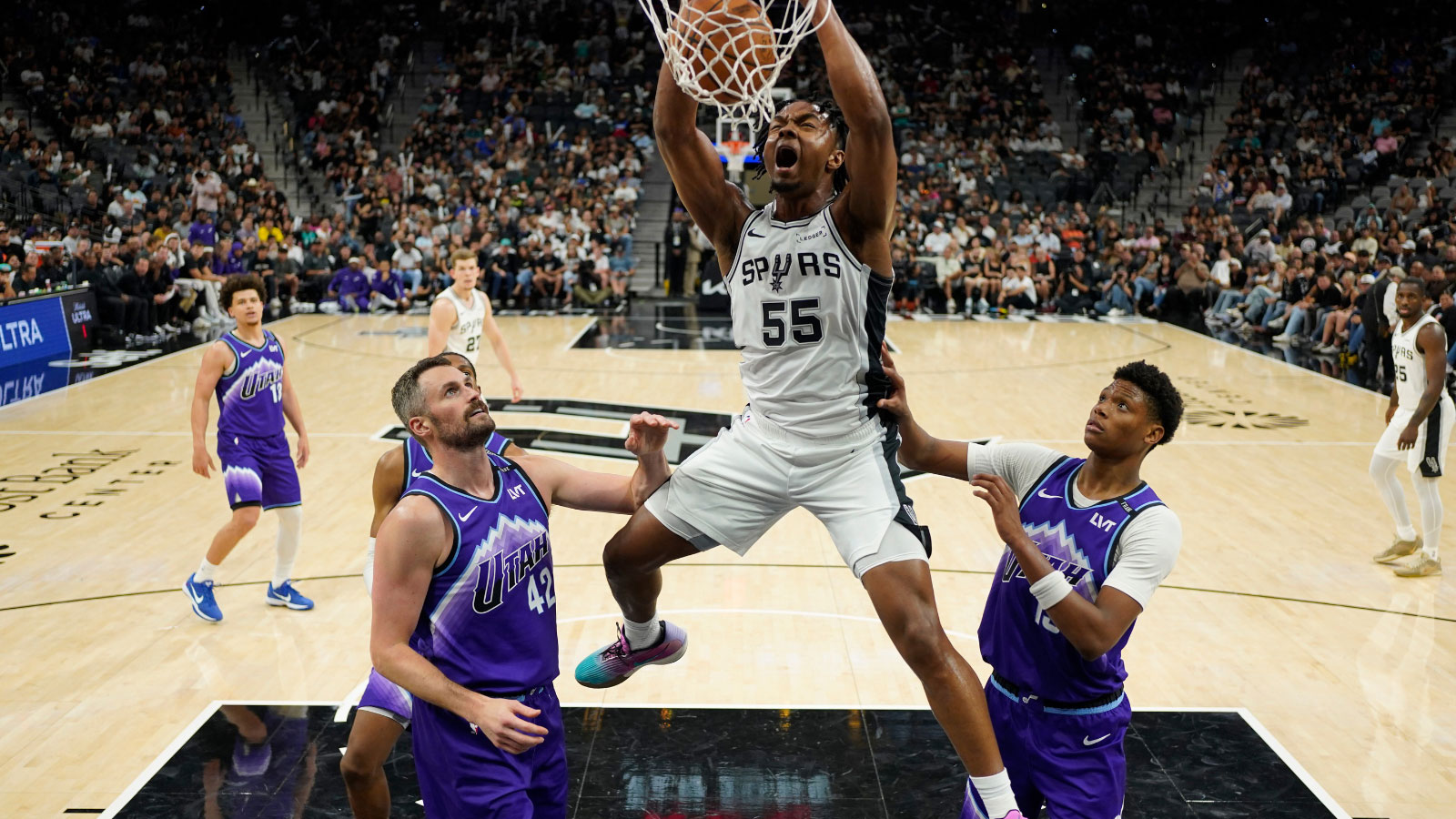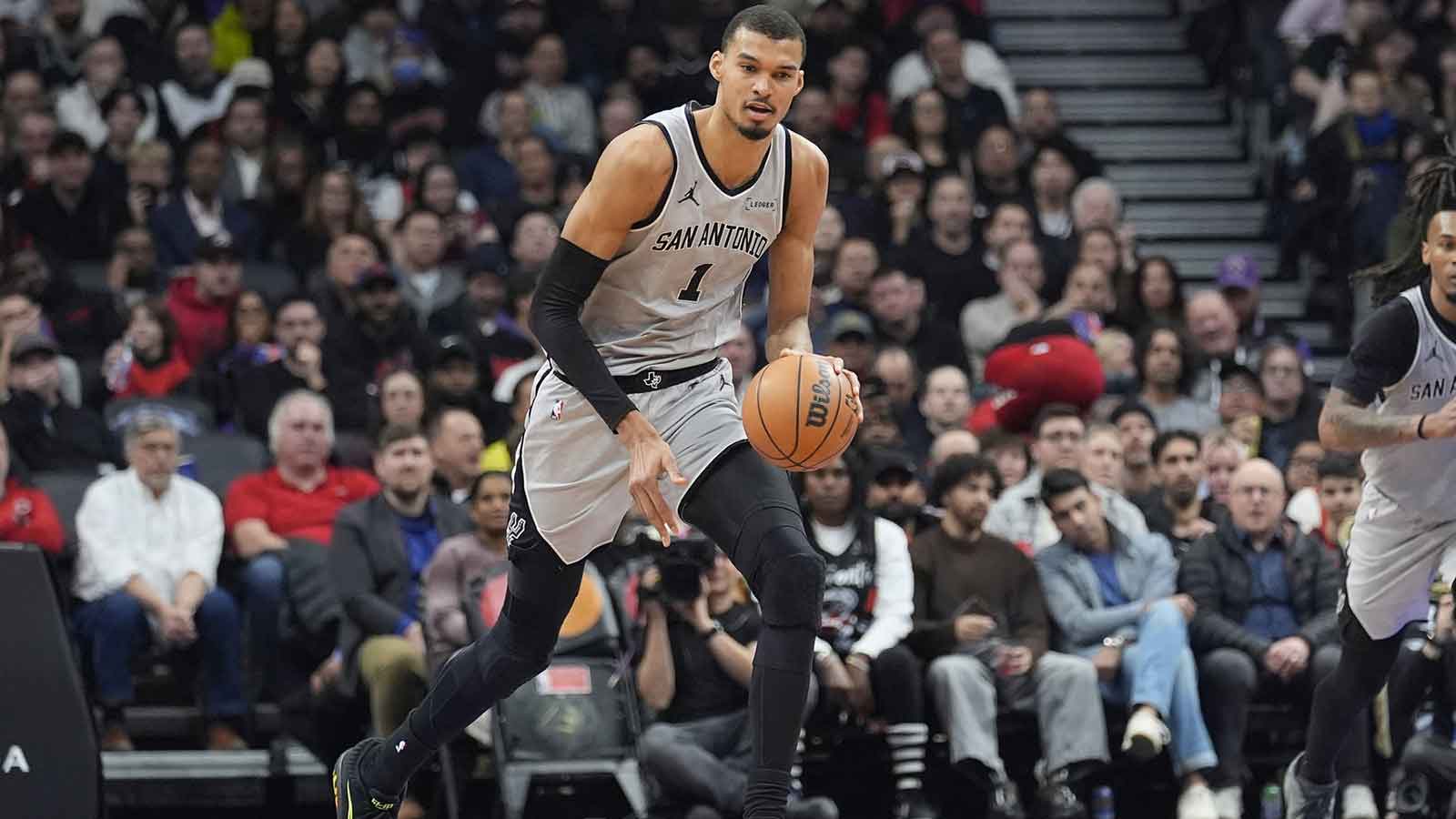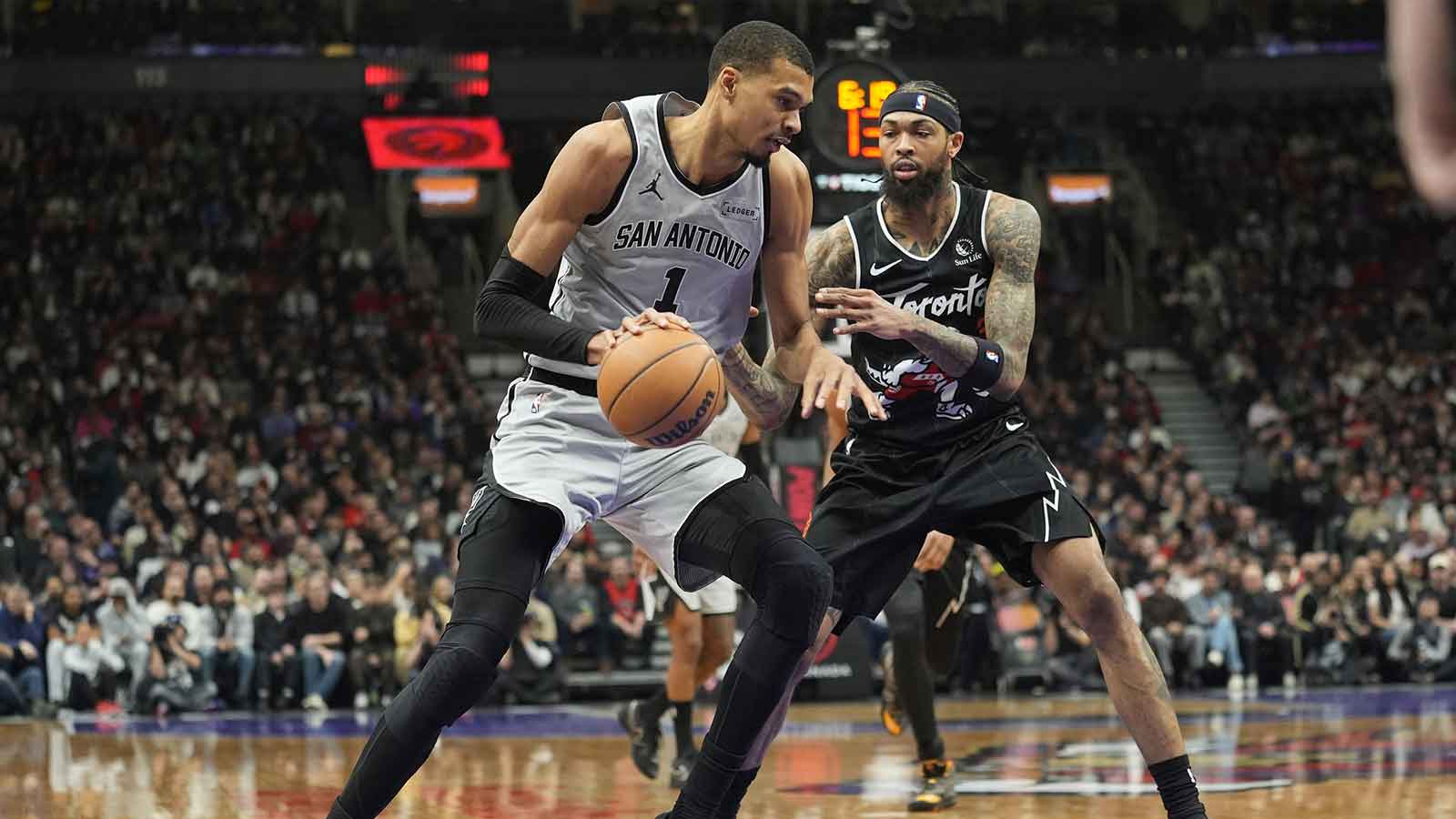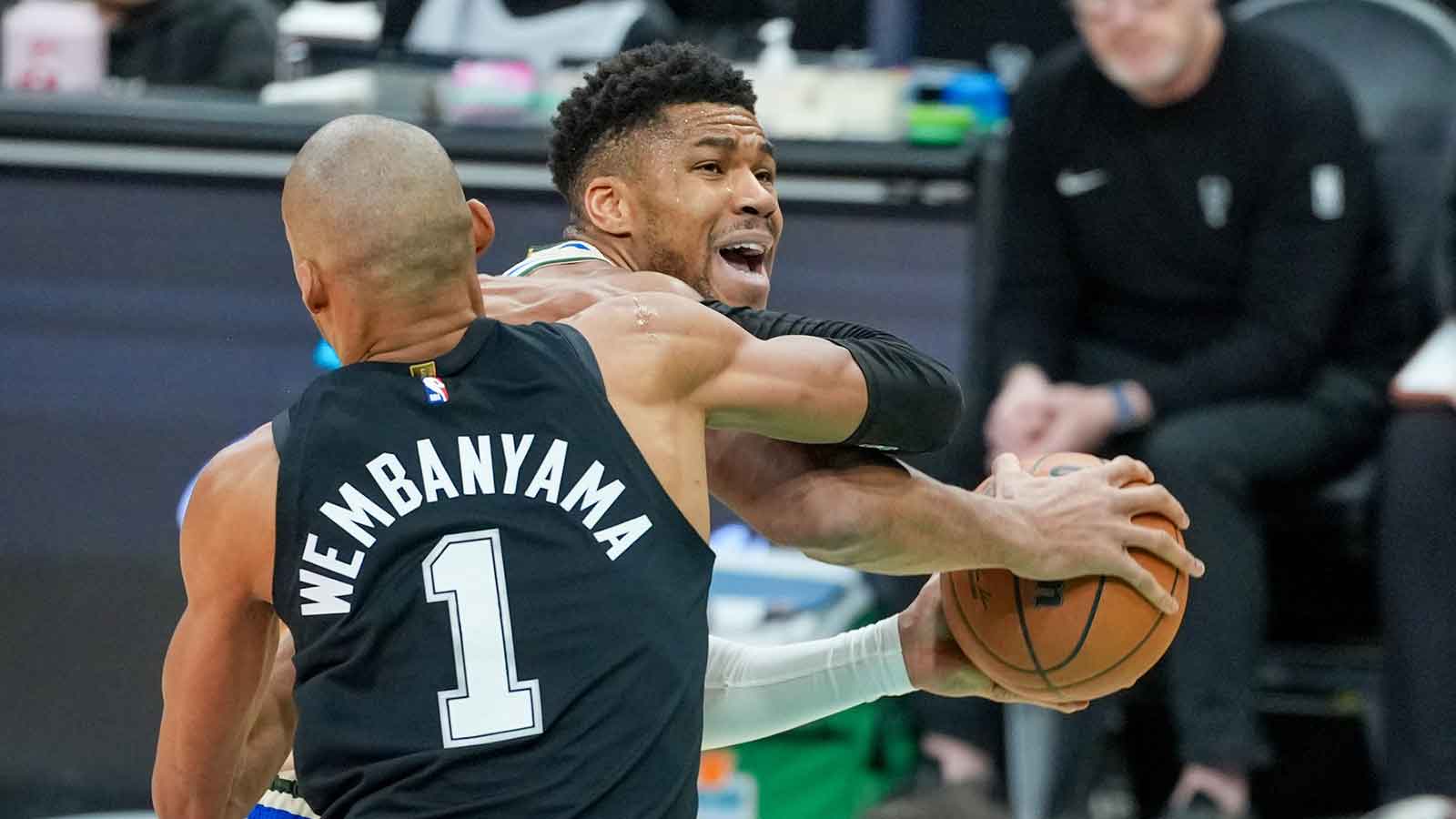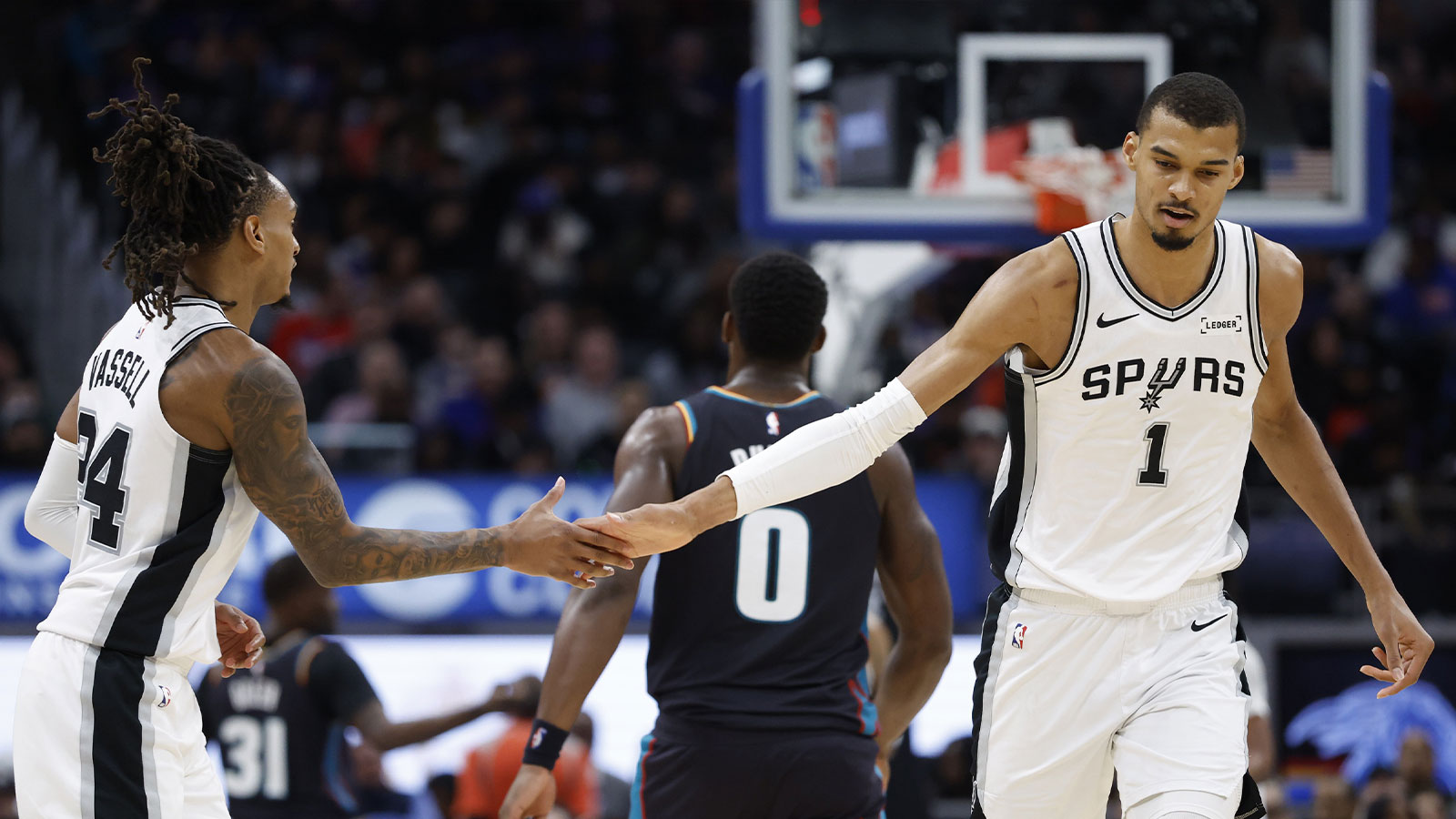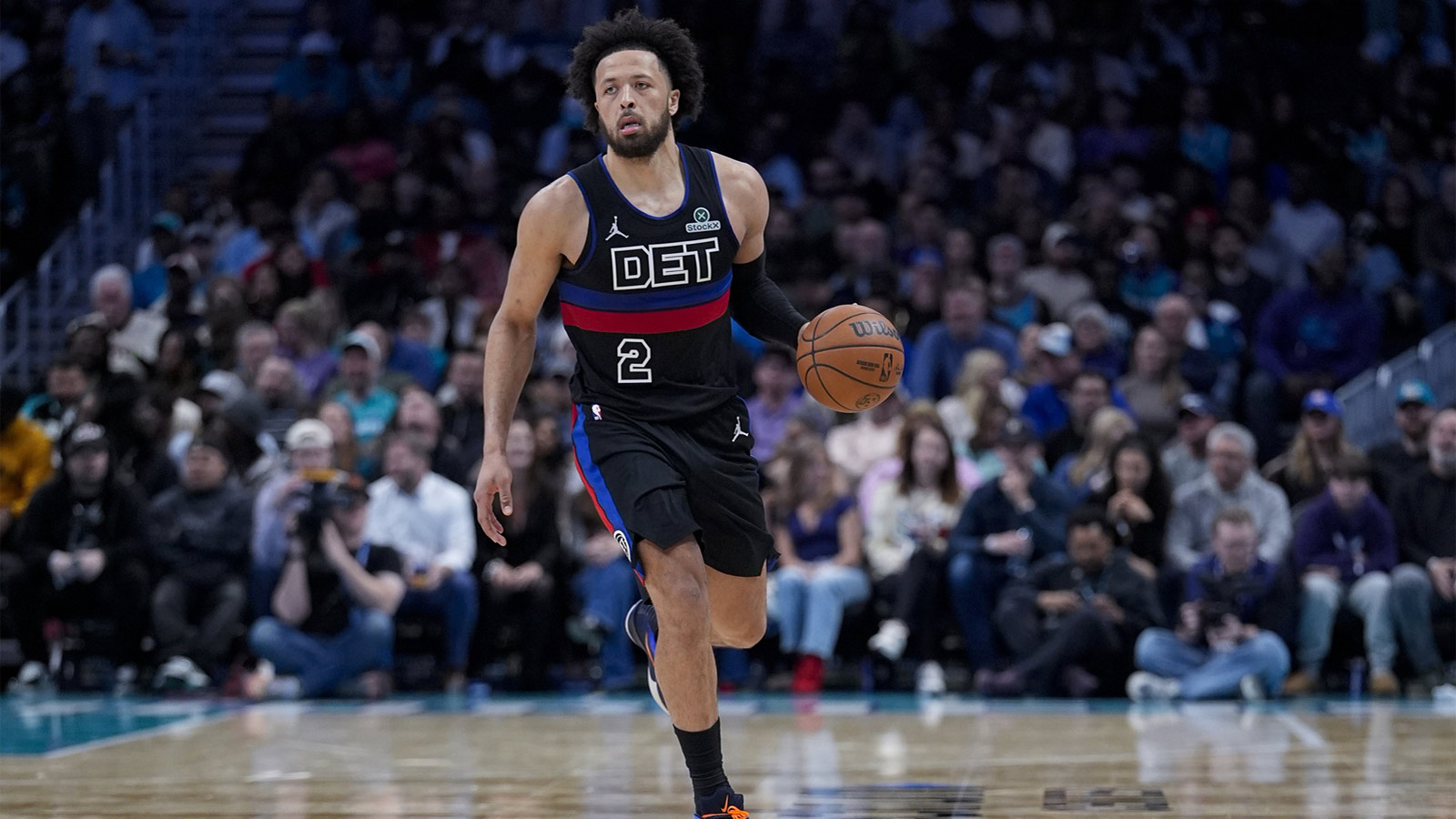One would think that it'd be easier to choose which iterations of the San Antonio Spurs belong in the top 10 greatest teams in franchise history list given how successful they have been in their 56 years of existence to this point. But on the contrary, it makes it more difficult, as there isn't much to separate the great Spurs teams from each other, other than to compare their respective greatness relative to the competition.
With that said, let's take a look back at the 10 best Spurs teams in franchise history as fans hope for their team to enter a new era of title contention — with Victor Wembanyama around to lead the way for a franchise that hasn't been too familiar with putridity.
10. 2005-06
Fresh off a championship run in 2005, the Spurs remained atop the league's totem pole in 2006, earning the first seed in the Western Conference after winning 63 games. Tim Duncan, Tony Parker, and Manu Ginobili were still at the height of their powers, and the Spurs had plenty of quality role players up and down the roster, with the likes of Bruce Bowen, Michael Finley, Brent Barry, Robert Horry, and Nick van Exel rounding out the squad.
However, some chicanery on the seeding front complicated the 2006 Spurs' playoff run. The second-best team in the Western Conference that year, the Dallas Mavericks, were the fourth seed despite winning 60 games. This put the two Southwest Division powerhouses on a collision course in the second round of the playoffs, with the 3-6 and 2-7 side of the playoff bracket being noticeably weaker.
The Spurs ended up bowing out in the second round, but not before a hard-fought Game 7 that went into overtime thanks to Dirk Nowitzki's heroics. Manu Ginobili had a chance to win the game in regulation, but he ended up throwing an airball, and the Mavs ran away with the game in OT. But make no mistake about it, the 2006 version of the Spurs was one of the deepest squads during their 20-year run of terrorizing the Western Conference.
9. 1994-95
David Robinson was well worth the wait for the Spurs. Since arriving from military duty in 1989, the Spurs became a contending team and did not look back (apart from their tanking season in 1997), with this particular era of San Antonio basketball peaking in 1995. This was the season in which Robinson won MVP honors, averaging 27.6 points, 10.8 rebounds, and 3.2 blocks per game.
Alas, Robinson and company simply did not have enough to stop a Houston Rockets team that had plot armor during this year. Despite entering the playoffs as the sixth seed, Hakeem Olajuwon turned it up in the playoffs, outdueling Robinson, outscoring the regular season MVP by 12 points as the Spurs exited the playoffs after six hard-fought WCF games.
Nonetheless, to that point in history, this Spurs team posted its most wins in a single season yet, which makes them worthy of inclusion on this list despite falling short in the postseason.
8. 2011-12
When the Memphis Grizzlies upset the Spurs during the 2011 playoffs as the eight seed, it seemed like the silver and black's dynasty was coming to an end. The Grizzlies outmuscled the Spurs and thoroughly outplayed them, and with Tim Duncan approaching his late 30s, a playoff defeat of this nature definitely felt like the end of an era.
However, in 2012, the Spurs were back in a big way. They won 50 games, extending their streak of winning 50 or more games despite playing a lockout-shortened, 66-game season. And after making quick work of the Utah Jazz and Los Angeles Clippers in the first two rounds of the postseason, the Spurs went up 2-0 against a young Oklahoma City Thunder squad, extending their winning streak to 20 (including the regular season).
But the Thunder came alive, thanks in large part to James Harden's burst into the spotlight, and OKC ended up winning four in a row to knock off the Spurs. Even then, this season did wonders for the Spurs' confidence, as this allowed the wounded dynasty to patch up the bleeding in order to become a legitimate title contender once more.
7. 2015-16
History does have a tendency of repeating itself. After a first round exit in 2014, some wondered whether the Spurs' time atop the league's totem pole was finished. But the Spurs signed LaMarcus Aldridge, and Kawhi Leonard took the next step in his ascent to superstardom, and San Antonio ended up setting the franchise record for most wins in a single season with 67.
Alas, there the Thunder were again, standing in the Spurs' way in the playoffs, this time in the second round. And there the Spurs were again, taking a series lead against an OKC team that seemed overmatched. But the Thunder figured the Spurs out once again, winning three straight games to cut San Antonio's season short.
This Spurs team may not have made the WCF unlike the previous two entries on this list, but their regular season excellence would have made them worthy champions in any other season, for as long as they don't run into Kevin Durant and Russell Westbrook once again.
6. 2012-13
The 2013 Spurs played some exquisite basketball, with Gregg Popovich ahead of the curve (relative to his time, of course) when it came to spacing the floor and utilizing the corner three. These Spurs made it a point to maximize the corner three, with Danny Green playing out of his mind in the 2013 NBA Finals. This version of the team also had Tony Parker at the height of his powers, while Tim Duncan was still his good ol' reliable self.
All of these factors put the Spurs within one win away from winning the franchise's fifth championship. In fact, the Spurs came within seconds of doing so, taking a 95-92 lead with less than 20 seconds to go. But then Ray Allen happened, turning the tides immensely towards the Miami Heat's favor. And the Spurs couldn't recover, unable to seal the deal in overtime of Game 6 and unable to cope with LeBron James in Game 7.
At least this season set up the Spurs' revenge arc in 2014…
5. 1998-99
It speaks volumes to how great of a player Tim Duncan was that in just his sophomore season, he already was the best player on a Spurs team that won the championship during a lockout-shortened season.
Duncan was only in his age-22 season when he led the Spurs to glory, winning Finals MVP honors in the process and proving himself worthy of becoming the franchise's championship cornerstone for the next 17 years. The only reason this Spurs team doesn't rank higher is that the other championship-winning versions of the team are deeper and boast a much better version of Duncan.
4. 2006-07
It certainly looked like the Spurs and Mavs were on a collision course for a playoff rematch. But when the Mavs couldn't hold their end of the bargain, the Spurs' championship window opened in a big way, with only the Phoenix Suns standing in their way as a legitimate challenger.
Alas, the Spurs, as is the case with every champion, benefitted from some shenanigans of their own doing as well as good luck. Robert Horry's hip check on Steve Nash inadvertently caused the suspension of both Amar'e Stoudemire and Boris Diaw, gutting the Suns' frontcourt depth. This made the Spurs' path to a championship that much easier, especially with the Utah Jazz and Cleveland Cavaliers not having enough weapons to stop the team from earning its fourth ring.
During this season, Manu Ginobili also moved to more of a full-time role off the bench, becoming the epitome of unselfishness for a Spurs dynasty built on playing for more than the name on the back of the jersey.
3. 2004-05
The 2007 Spurs roster may be deeper overall than the 2005 squad, but what separates this team from the previous entry on the list is that they faced stiffer competition on their way to the championship. The Seven Seconds or Less Suns had its deepest roster during their run under Mike D'Antoni, as they still had Joe Johnson, Quentin Richardson, and Jim Jackson around to provide some spacing and transition pressure. But the Spurs still dispatched of them in five games, setting up a matchup with the reigning champion Detroit Pistons in the Finals.
Those Pistons were no joke. The five-man unit of Chauncey Billups, Rip Hamilton, Tayshaun Prince, Rasheed Wallace, and Ben Wallace made life difficult for the Spurs, as San Antonio needed seven games — and some heroics from Robert Horry — to overcome the defending champions. Unlike in 2007, these Spurs faced some truly tough adversity, and managed to overcome them all the same.
2. 2002-03
The road the 2003 Spurs had to go through to win the championship was no joke. They had to face the Los Angeles Lakers, a team in the middle of its quest to achieve the first four-peat in NBA history since the Boston Celtics accomplished the feat in the 1960s, in the second round of the playoffs. And they beat them in six games, setting up a date against a Mavs team that loved to space the floor in the WCF.
And the Spurs overcame that challenge too, en route to winning the championship in six games over a New Jersey Nets team that took advantage of how weak the Eastern Conference was in the early-2000s.
The Spurs also had one of their deepest teams in franchise history in 2003, with David Robinson, Steve Kerr, Stephen Jackson, Malik Rose, and Steve Smith around to give the team some firepower, not to mention young Manu Ginobili and Tony Parker.
1. 2013-14
When the phrase “beautiful basketball” is brought up, the 2014 Spurs are one of the first teams that come to mind. The Spurs had a singular goal of avenging their loss to the Heat in the 2013 NBA Finals, and it showed in how in sync they were on the court. It was as if all members of the team were of one mind, reading each other's intentions before the thoughts even enter their brains.
The 2014 Spurs had their fair share of difficulties in the playoffs. They needed to play seven games just to get out of the first round, and the Thunder, once again, stood in their way. But there was nothing that was going to stop them from achieving their fate that was a year in the making, not even the team that dashed their hopes in 2012 and 2016.
In the 2014 Finals, the Spurs dominated the Heat. Kawhi Leonard slowed LeBron James down as much as one could, Manu Ginobili revived his career after a brutal showing the year prior, and Tim Duncan and Tony Parker did Tim Duncan and Tony Parker things.
Winning a championship in 2014 simply was meant to be for the Spurs. And they certainly played like it.

